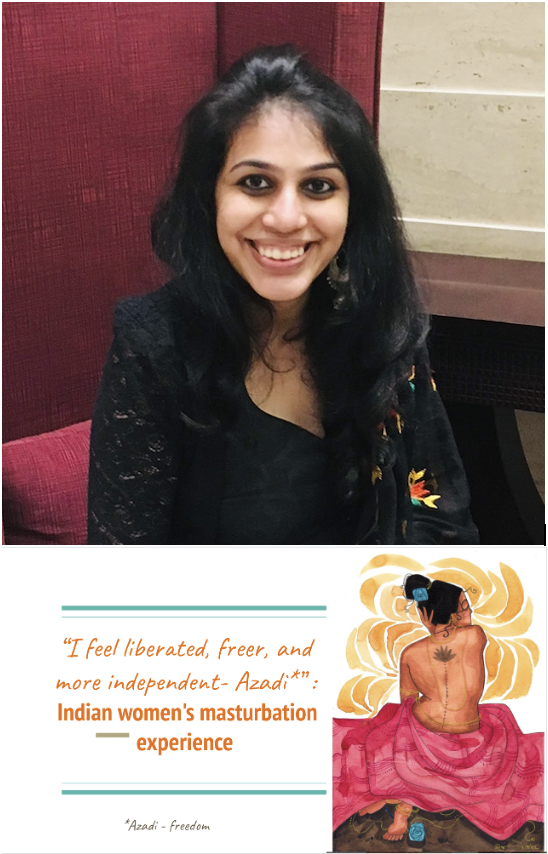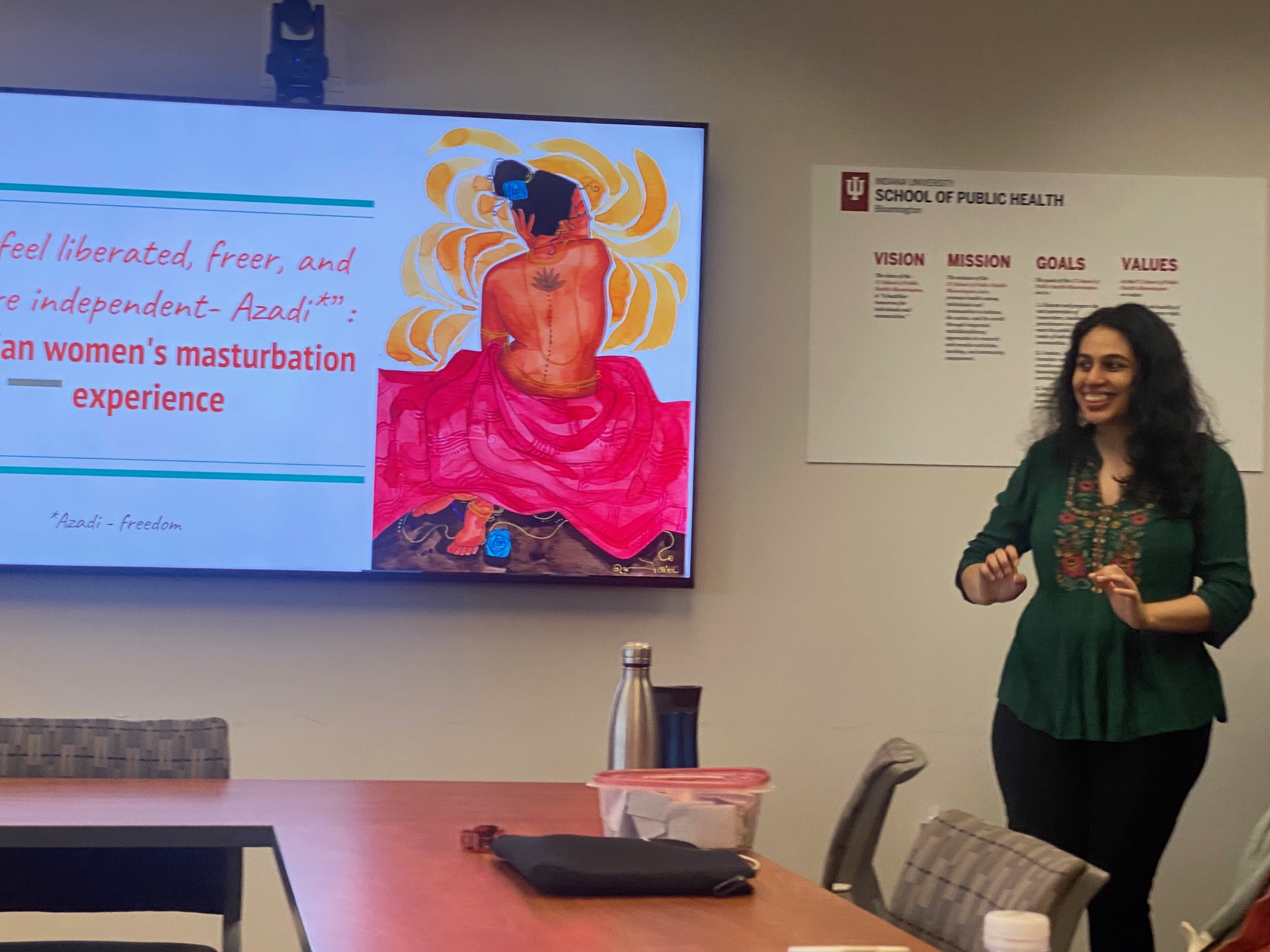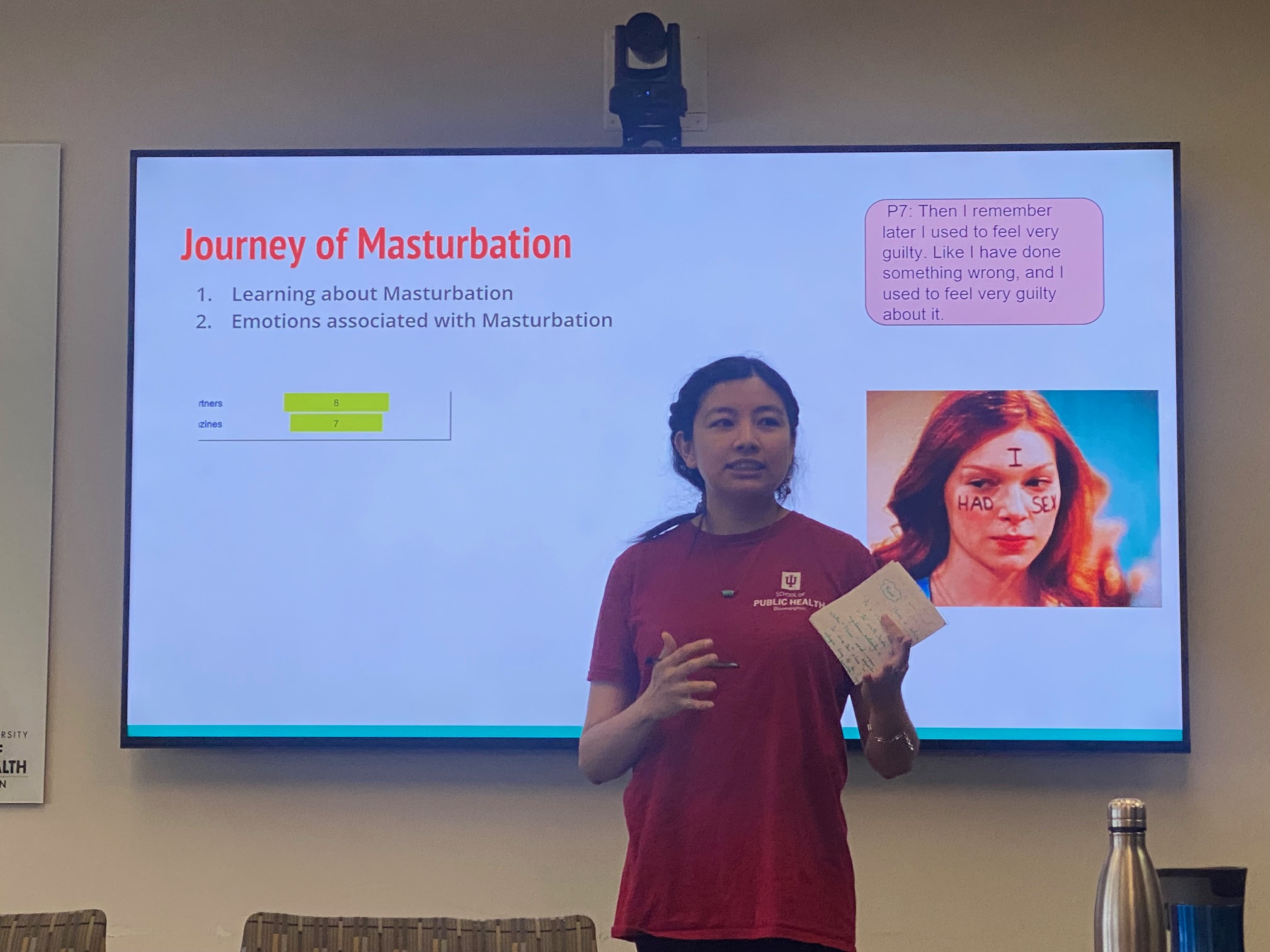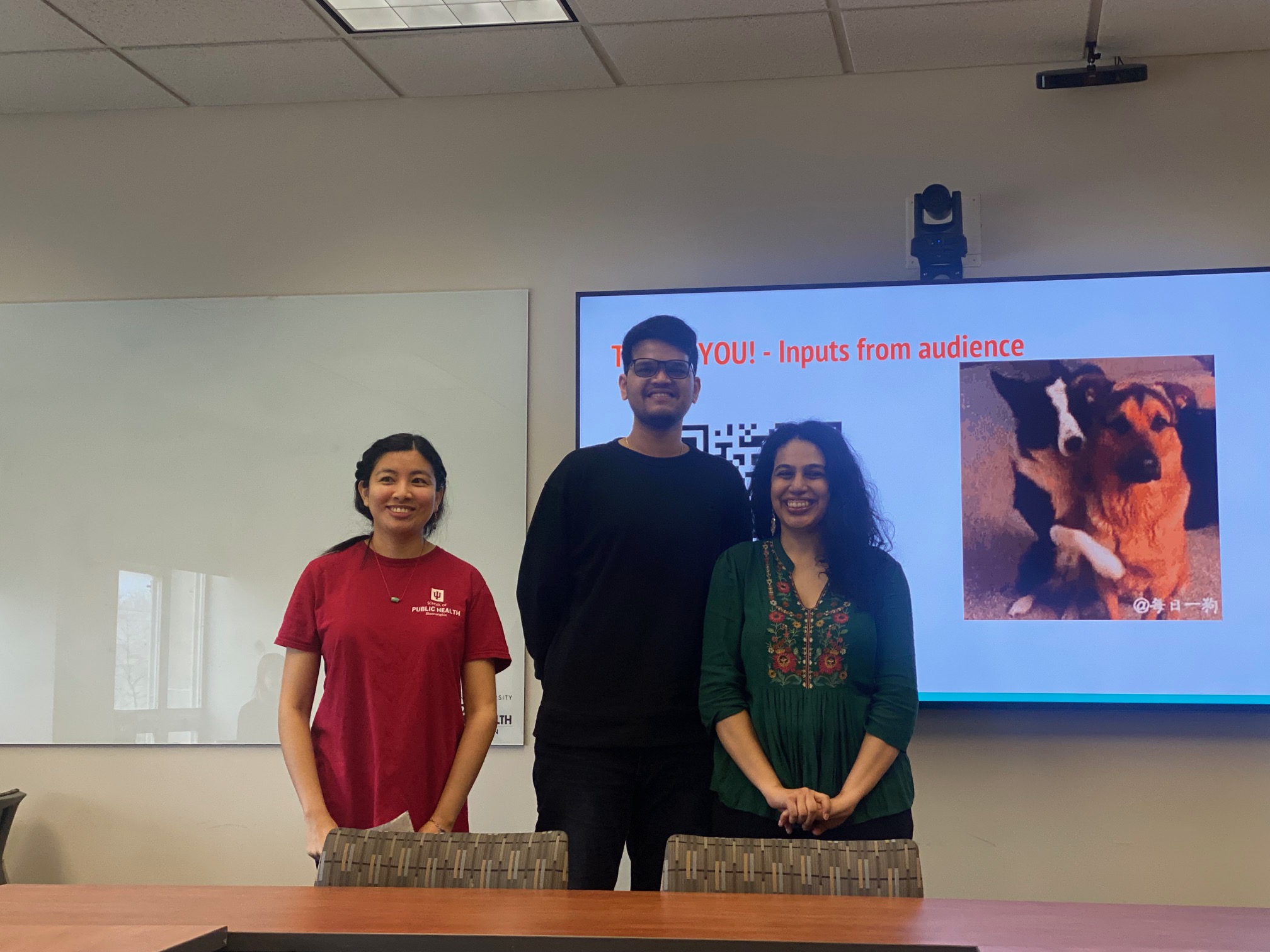CSHP Doctoral Student, Shahzarin Khan, recently presented her research titled, "'I feel liberated, freer, and more independent – Azadi': Indian Women's Masturbation Experiences" at the Applied Health Science Graduate Research Colloquium. Shahzarin completed this project with help from Ngawang Tenzin, Supriya Ingle, Satyajeet Arun Safare, Siya Kulkarni, and Drs. Debby Herbenick and Lucia Guerra-Reyes.
Shahzarin and colleagues conducted a qualitative study on the masturbation experiences of Indian women during the COVID-19 pandemic. The project involved conducting semi-structured interviews in English and Indian languages (Hindi and Marathi) in July-Sep 2021. Interviews were transcribed, translated, and analyzed using deductive coding and thematic analysis.
When asked to describe their findings, Shahzarin said: "Findings indicated the presence of a negative view of women’s sexual pleasure in Indian society. We traced women’s masturbation journeys, including their early memories of masturbation, learning through various sources, associated emotions (guilt and shame) and how these emotions evolved over time. We observed a sense of empowerment from masturbation. Most women reported experiencing more sexual pleasure from masturbation than penetrative sex. We also found different patterns of communication about masturbation and female sexual pleasure between the participants and their male partners". Shahzarin also added, because the interviews were conducted during the COVID-19 pandemic, that "during COVID-19, there was a decrease in sexual activity, and masturbation frequency due to various reasons such as lack of privacy, low sex drive and inability to meet partner".
Shahzarin noted that it was her first time presenting the data after analysis, and that they received great input and encouragement from the Applied Health Science department. To graduate students developing research presentations, Shahzarin recommends working closely with an advisor and welcoming feedback. She also noted that she and her colleagues found it helpful to have an interactive element to their presentation; for this talk, Shahzarin and her co-presenters used Mentimeter.





